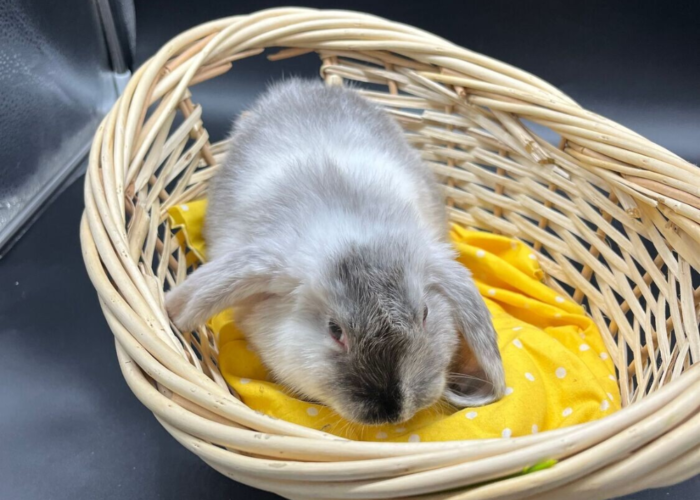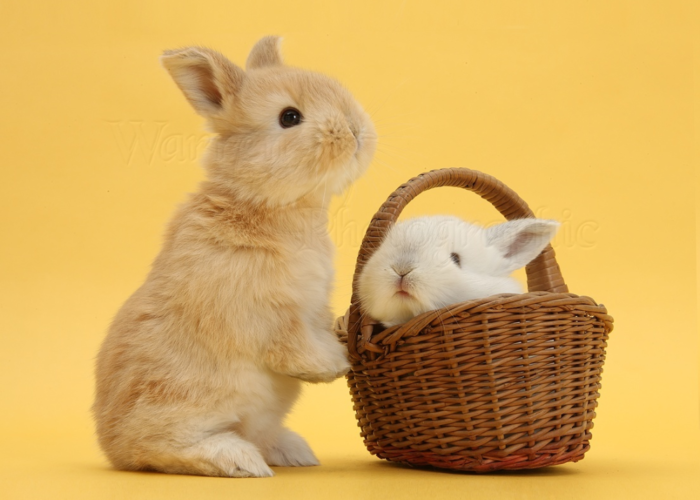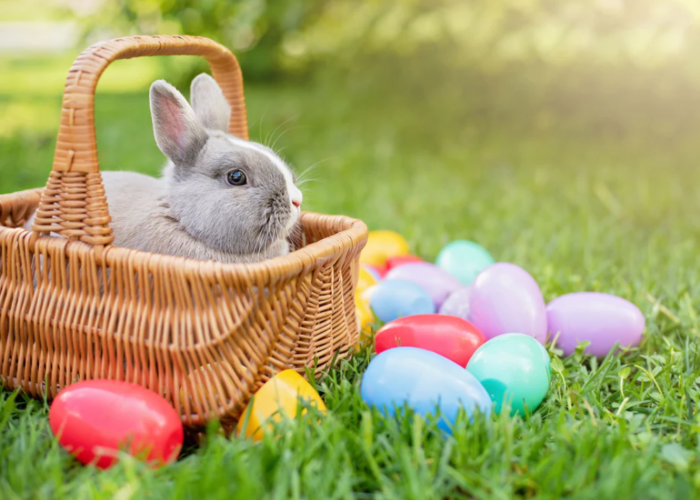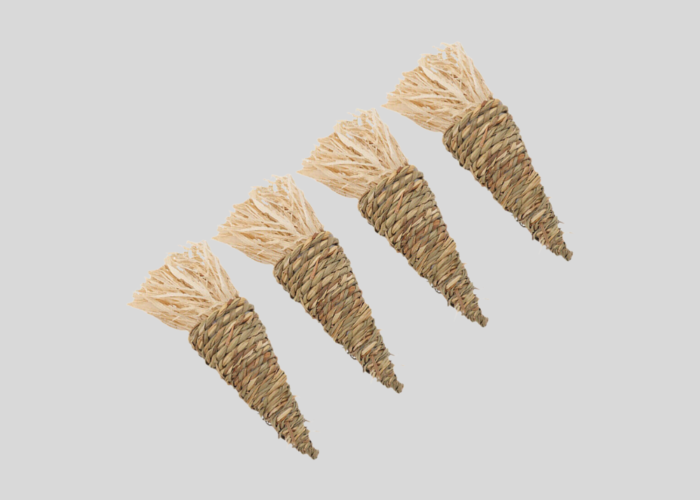When it comes to providing a comfortable and secure environment for our furry companions, rabbit owners often seek out various housing options. Wicker baskets, with their natural charm and cozy appeal, might seem like an ideal choice. However, with rabbits’ innate chewing instinct, they will gnaw on your baskets.
So, are wicker baskets safe for rabbits to eat? In this article, we will explain the advantages and disadvantages of using wicker baskets for rabbits and provide some tips to keep your pet from chewing on them. Let’s explore!
Contents
1. Are wicker baskets safe for rabbits?
Not all wicker materials are safe for rabbits. Some wicker baskets may be made from toxic materials or treated with chemicals that can be harmful if ingested by rabbits. Look for baskets made from natural, untreated wicker materials to use when your family have rabbits.
Safety Tips:
- Choose carefully: Select willow wicker baskets from reputable sources and ensure they are made from untreated willow wicker.
- Technical inspection: Before introducing a new willow wicker basket to your rabbit, thoroughly inspect it to ensure there are no harmful additives or materials that could pose a danger.
- Supervision is key: Always supervise your rabbit’s interactions with the willow wicker basket, especially during the initial stages when they are getting accustomed to new toys.

How to tell if a wicker basket is treated?
To check whether a wicker basket has been treated, you can use the following methods:
- Check the product label: If the wicker basket has a product label, you can read information about its materials, origin, and treatment. If the product label states that the wicker basket is made from rabbit-safe woods and is not treated with chemicals, you can feel confident using it.
- Observe the color: If the wicker basket has a natural color, such as brown, yellow, or green, it is likely untreated. If the wicker basket has vibrant colors like red, purple, or blue, exercise caution as it may be dyed with chemicals.
- Smell: If the wicker basket has a natural scent of wood, it is likely untreated. If it emits an unpleasant odor, such as a musty or chemical smell, you should avoid it as it may cause respiratory irritation for rabbits.
- Examine the texture: If the wicker basket has a soft and easily breakable texture, it is likely untreated. If the wicker basket has a rigid and hard-to-break texture, be cautious as it may be treated with chemicals for durability.

It’s essential to thoroughly check the materials and treatment of wicker baskets before use, avoiding allowing rabbits to eat or lick baskets that may cause poisoning or irritation. If you want to purchase wicker baskets for rabbits, look for products made from rabbit-safe woods and untreated with chemicals.
2. Can rabbits chew on sticks from outside?
Rabbits are small, adorable, and friendly animals that enjoy a diet consisting of grass, vegetables, fruits, and even dry plants. But can they chew on outdoor plants? This is a question that many pet owners often wonder about.
According to veterinary experts, allowing rabbits to chew on outdoor plants can be beneficial for their teeth. It helps prevent teeth from growing excessively long and reduces the risk of dental issues. However, not all types of wood are safe for rabbits.
It’s crucial to choose wood that is free from toxins, pests, chemical treatments, and strong odors. Some safe types of wood for rabbits include apple, mulberry, willow, aspen, hazelnut, and hawthorn.

Additionally, it’s essential to thoroughly wash and dry the wood before giving it to rabbits. Cutting the wood into small pieces is advisable to prevent rabbits from choking or injuring their mouths. Regularly supervise rabbits while they chew on wood, and check their dental health consistently.
Chewing on outdoor plants can be a source of entertainment and dental care for rabbits. However, careful selection and thorough preparation are necessary to ensure the health and safety of your beloved pets.
3. What can I give my rabbit to chew on?
Rabbits are animals that require an adequate supply of fiber to maintain dental and digestive health. Therefore, providing items for rabbits to chew on is crucial.
Here are some things you can offer for your rabbit to chew on:
- Hay: Dry hay is the primary source of fiber for rabbits and should constitute around 80% of their diet. You should provide unlimited access to dry hay for your rabbit every day. There are various types of dry hay available, but timothy hay, alfalfa hay, and oat hay are common and safe choices for rabbits.
- Wood: Wood is a natural material that rabbits can chew on to grind their teeth and for entertainment. However, you should only offer rabbits wood from non-toxic trees, such as apple, willow, aspen, or hawthorn. It’s essential to clean the wood and remove the bark before allowing rabbits to chew on it.
- Toys: You can purchase rabbit toys at pet stores or make your own using safe materials like untreated rattan (rabbits can eat untreated rattan), cardboard, or grass. Some popular toys for rabbits such as: wicker balls rabbit chew toys, Carrot Shaped Rabbit Chew Toy, Grass Ball for Rabbits…

Ensuring a variety of safe chewing options for your rabbit contributes to their overall well-being, keeping their teeth healthy and providing mental stimulation to prevent boredom.
4. Conclusion
In summary, wicker baskets are safe for rabbits to eat and chew as long as they are made from natural, untreated materials. To be safe, provide safe chewing options as suggested above to prevent any potential dangers.
If you have any further questions, don’t hesitate to send thanhcongcraft an email us at [email protected] or message us at WhatsApp: +84967485411. Hope to serve you soon! Best regard!


